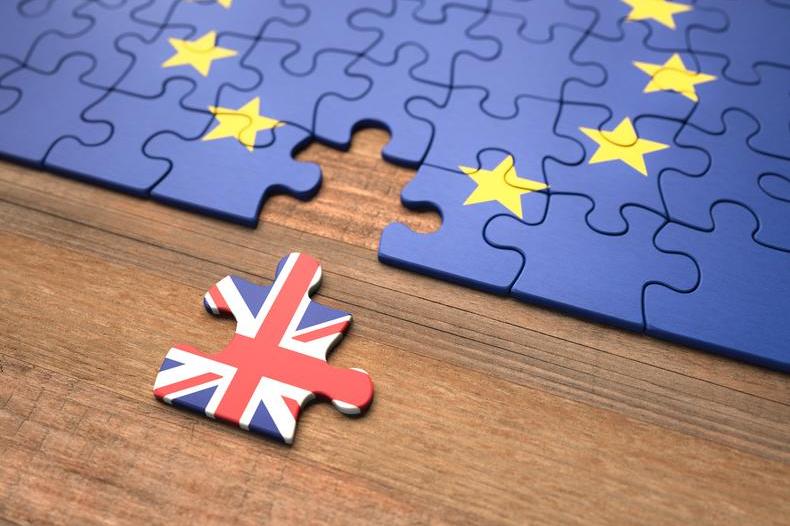Exhaustion end game
“Things have not started well.” With no reciprocal recognition in place Michael Silverleaf QC shares his take on the issue with exhaustion of rights post-Brexit.

Brexit is an opportunity for the UK to review the exhaustion regime but it is unclear where we will end up. I’ll be sharing my predictions of our direction of travel and how we might get there at CITMA’s Spring Conference in March.
The law of exhaustion within the EU has a long and chequered history. The principle of free movement of goods was enshrined in Art 9 of the original Treaty of Rome which created a customs union prohibiting the imposition of customs duties and charges on the movement of goods between the member states.
The principle was reinforced by the provisions of Arts 30 and 34 which prevented the imposition of quantitative restrictions or measures having equivalent effect on imports and exports between member states.
Article 36, however, contained an exception from the provisions of Articles 30 and 34 for the protection of “industrial and commercial property”, or intellectual property as we know it these days.
That provision gave rise first to a stream of European Court jurisprudence and then to directives and regulations which sought to codify those decisions.
More than 50 years ago the Court of Justice first held that trade mark rights could not be used within the European Community to enforce partitioning of the market between member states.
Since then the law at European Union level has steadily developed to cover all intellectual property rights and to determine the limited circumstances in which those rights can be enforced against goods first marketed elsewhere in the EEA by the right owner or with his consent.
To help it do so, the Court developed the concept of the specific subject matter of each right to define those circumstances.
Case law
In relation to trade marks, the specific subject matter has been critical. It has resulted in many decisions that goods such as pharmaceuticals which need to be repackaged for sale in another member state may be repackaged with the trade mark reapplied provided this does not risk damaging their original condition.
The effect of the case law is now found incorporated into European legislation on trade marks, designs and copyright.
In contrast, the importation of goods from outside the EU can give rise to infringement claims – the creation of the so-called fortress Europe. The intellectual and economic arguments in favour of and against the fortress are well-known.
Before the UK joined the EU (then the EEC), there were complicated and confusing rules arising from the case law about when trade mark and other intellectual property rights could be enforced against imported goods.
The primary rule – dating from mid-Victorian decisions – was that the sale of goods by the proprietor of the right anywhere in the world gave the purchaser the right to do with those goods whatever he wished – and that included importing them into the UK.
Conversely, with an approach which is perhaps difficult to reconcile intellectually with the first rule, a right owner could licence the right territorially and prevent the importation into the UK of goods first sold abroad by his licensee. Sometimes. It was a question of fact in each case whether the permission given to the original purchaser was so limited.
Brexit opportunity
Brexit gives the UK an opportunity to review them and consider where it wishes to set the limits on international exhaustion. Consultations are currently underway on where we want to end up.
Unfortunately, things have not started well in my view. The exit regulations provide for exhaustion of rights in the UK for goods first marketed in the EEA. But there is no reciprocal recognition by the EU or the EEA member states for exhaustion in relation to goods first marketed in the UK.
The recent Free Trade Agreement contains no exhaustion provisions. Article IP.5 simply says that the agreement does not affect the freedom of either party to determine when there shall be exhaustion.
The UK is now a third country and thus outside fortress Europe. So goods covered by intellectual property rights can come in but not go out.
Thus we are largely back to traditional English law – for importation from non-EEA countries – with EU exhaustion for goods coming in from the EEA and no right for goods to go from the UK to the EU without risking an infringement claim.
The impact this will have on UK traders is wholly unpredictable. However, the unexpected consequences of VAT and customs barriers since we left the single market may be a harbinger for what to expect.
From the limited feedback coming from the ongoing consultation, it appears that the government, having started from the position that the UK should have complete international exhaustion, has moved to the position that we should have regional exhaustion within the EEA.
It is unclear whether there is any support for this from the EU and EEA member states. Given the absence of any provision in the Free Trade Agreement, this seems unlikely. If there were common ground one would expect to find it there.
So we enter unknown territory with little or no guidance.

In my talk at the CITMA Spring Conference I will endeavour to investigate where we appear to be trying to go and where we might end up. I can’t promise to predict correctly or with precision but I will give you real food for thought.
Author: Michael Silverleaf QC, 11 South Square
Hear Michael Silverleaf QC to gain leading insight on the impact of Brexit on IP and the profession at our Spring Conference.
Joining Michael will be leading figures in IP, including Tim Moss from the UK IPO, Juan Rodriguez Gerra from WIPO, and Michael Edenborough QC.
This year we are putting a premium on making the conference as interactive as possible to enable you to network and grow your forest of contacts. We encourage you to bring your own questions and opinions, so that we can bring these virtual discussions directly into your workplace.

